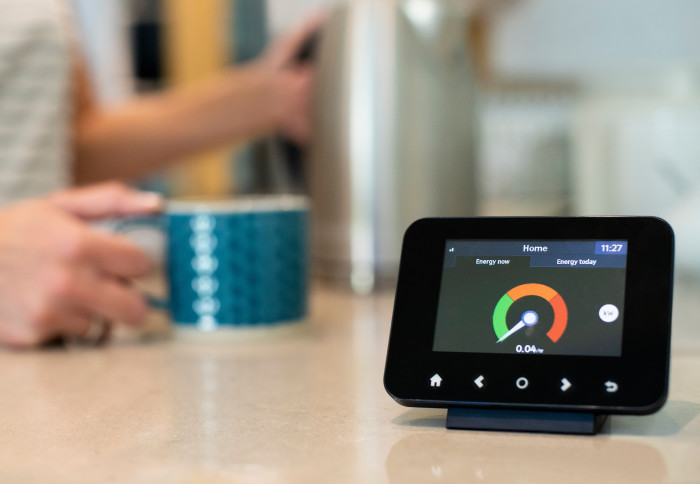Privacy improvements could enable smart meters to unlock lower energy bills

Realising the full potential of smart meters requires a new approach to data privacy, according to a report published this week by Energy Futures Lab.
Balancing Privacy and Access to Smart Meter Data finds a combination of privacy-preserving techniques should be put in place to protect personal data while allowing energy companies and other stakeholders access to detailed information collected from smart meters.
Unlike traditional gas and electricity meters, smart meters record energy use in real time and transmit that data to energy suppliers at regular intervals, as often as every half hour, eliminating the need for physical meter readings and estimated energy bills.
This data has the potential to allow energy companies to more accurately forecast periods of increased energy demand, bringing down the cost of electricity and making the system more efficient.
Smart meter data should be considered as sensitive as location, financial and health data Dr Fei Teng Co-author, Balancing Privacy and Access to Smart Meter Data
The data could also be used to enable smart grids and demand shifting, whereby price signals are used to shift energy demand to times when supply is greener and cheaper, reducing both household bills and greenhouse gas emissions.
However, widening access to high-resolution smart meter data opens up the possibility of privacy infringements, according to the authors of the Briefing Paper, who warn that new privacy-preserving measures are needed before the full benefits can be realised.
“Although smart meters record the total energy used in a home, machine learning could be used to detect and estimate the power consumption of different household appliances, making it possible to identify household characteristics and demographic information,” Energy Futures Lab’s Dr Fei Teng, lead author of the report, explains.
This information could theoretically be linked with data from other sources to build up a detailed profile of specific consumers.
“Smart meter data should be considered as sensitive as location, financial and health data. Unless we protect consumers by changing how we store, process and use that data, we will not be able to reap the benefits of smart meters for householders, energy suppliers and network operators,” he says.
The Briefing Paper outlines a series of measures which could be taken to minimise the risk of privacy infringements, including data obfuscation, encryption, differential privacy and edge-based data processing.
The authors recommend policymakers and regulators introduce a combination of such techniques and call for transparency around how smart meter data will be used. The report also highlights the application of differential privacy in the 2020 US Census and draws lessons for smart meter data.
“Ultimately, there is a balance to be struck between privacy and access to data. Our recommendations would both protect consumers from potential privacy infringements and allow energy companies to gain the insights they need to enable the transition to more dynamic, cost-effective, cost-reflective, and decarbonised electricity, while also spurring innovation beyond the energy sector,” says Dr Teng.
To find out more, download Balancing Privacy and Access to Smart Meter Data: An Energy Futures Lab Briefing Paper here.
Teng, F., Chhachhi, S., Ge, P., Graham, J., and Gunduz, D. (2022) Balancing Privacy and Access to Smart Meter Data, An Energy Futures Lab Briefing Paper, Imperial College London. Available at: www.imperial.ac.uk/energy-futures-lab/reports/briefing-papers/paper-9/
Article supporters
Article text (excluding photos or graphics) © Imperial College London.
Photos and graphics subject to third party copyright used with permission or © Imperial College London.
Reporter
Conor McNally
The Grantham Institute for Climate Change